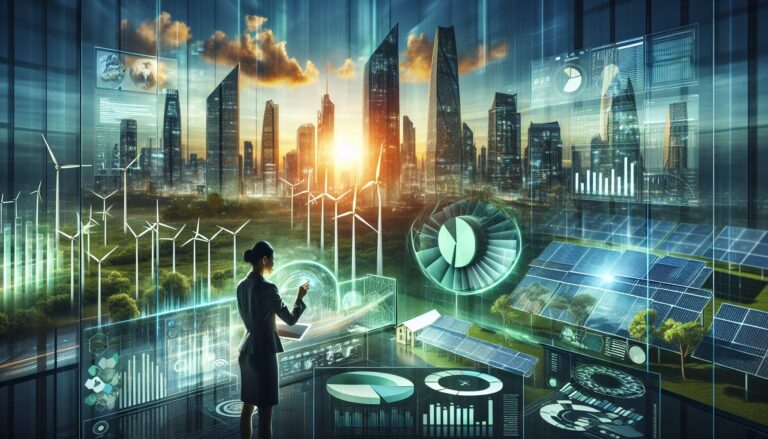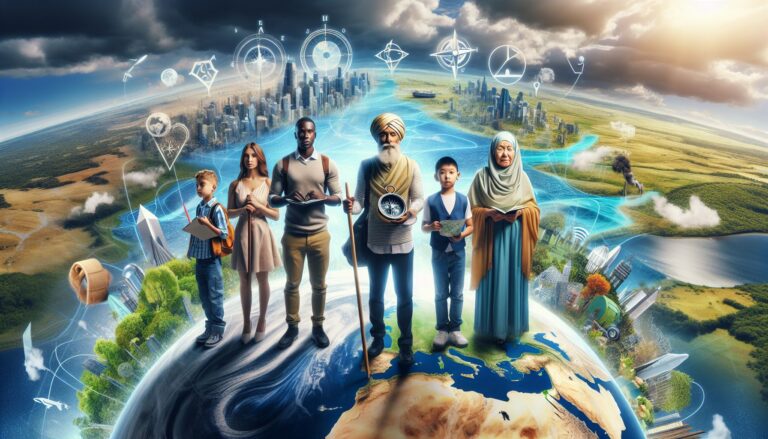The global business landscape is evolving at an unprecedented pace, driven by the urgent need to address environmental challenges. As the world recognizes the importance of sustainability, businesses are facing the imperative to adapt and take proactive steps towards environmental stewardship. In this blog post, we will explore the implications of current environmental trends on the business sphere and shed light on potential future scenarios.
The Current State of the Environment
Our planet is facing a multitude of environmental challenges, ranging from climate change and biodiversity loss to resource depletion and pollution. These challenges are no longer distant threats; they have become pressing realities that demand immediate attention. The scientific consensus is clear: we need to change our ways to ensure the long-term survival of our planet and future generations.
Impactful Business Trends
- Renewable Energy Transition: The shift towards renewable energy sources is gathering momentum as businesses recognize the benefits of clean energy for both the environment and their bottom line. Increased investment in solar and wind power, coupled with advancements in energy storage technology, is driving down costs and making renewable energy a viable option for businesses globally.
- Circular Economy: The linear “take-make-dispose” model is being replaced by a circular economy approach, where resources are used more efficiently, waste is minimized, and products are designed for longevity and recyclability. This paradigm shift not only reduces environmental impact but also presents new business opportunities in waste management, recycling, and remanufacturing.
- Ethical Supply Chains: Consumers today are increasingly conscious of the environmental and social impact of the products they purchase. Businesses are therefore under pressure to ensure their supply chains are transparent, sustainable, and free from unethical practices such as deforestation, child labor, and exploitation. Ethical sourcing and responsible production are no longer mere buzzwords but essential requirements for businesses to maintain consumer trust and loyalty.
- Digital Transformation: The rapid advancement of technology is enabling businesses to optimize their operations, reduce resource consumption, and enhance environmental performance. From the implementation of smart grids and energy-efficient buildings to data-driven decision-making and remote work arrangements, digital transformation is revolutionizing the way businesses operate and interact with the environment.
Connecting the Dots: Looking Towards the Future
The current environmental trends are not isolated phenomena; they are interconnected and pave the way for a sustainable future. As businesses incorporate these trends into their strategies, they can become drivers of positive change and agents of innovation in their respective industries. However, successful adaptation requires a holistic approach that encompasses education, collaboration, and long-term thinking.
In the coming years, businesses that neglect sustainability will face increasing risks, from regulatory scrutiny to reputational damage and supply chain disruptions. Conversely, those that embrace sustainability will gain a competitive edge, attract environmentally conscious customers, and contribute to a more resilient and prosperous society.
To thrive in the shifting landscape, businesses must:
- Embrace sustainable practices throughout their value chains, from sourcing and production to distribution and end-of-life management.
- Collaborate with stakeholders, including governments, NGOs, and consumers, to address shared environmental challenges.
- Innovate and invest in research and development to develop environmentally friendly products, services, and technologies.
- Engage employees and foster a culture of sustainability, empowering them to contribute to positive change both within and outside the organization.
In conclusion, the environmental trends we are witnessing today are not temporary fluctuations but transformative shifts that have far-reaching implications for businesses. By understanding these trends, adapting to new realities, and embracing sustainability, businesses can navigate the shifting landscape and contribute to a more sustainable future for our planet. It is high time for businesses to step up and be leaders in the journey towards environmental stewardship.

